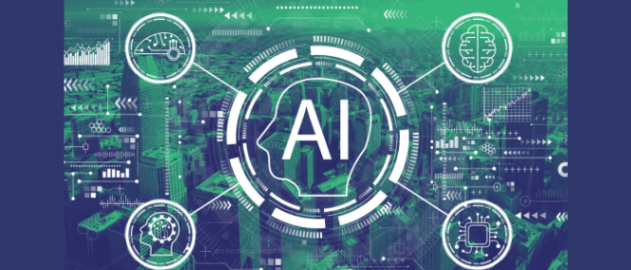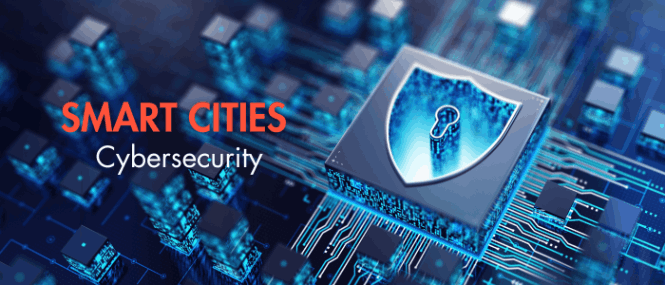
AI in Smart Cities: A Cybersecurity Revolution
Let’s dive deep into Artificial Intelligence (AI) and how it’s transforming the often overlooked but critically important arena of Smart City Cybersecurity. We’ll break down AI in smart cities in simple terms, add a pinch of humor, and make sure you’re entertained while learning. So, what are we waiting for? Let’s roll!
The AI Enigma
First things first – AI, or Artificial Intelligence, is the brainchild of computer science that aims to make machines perform tasks that typically require human intelligence. Imagine having a robot buddy who can chat, recognize faces, and maybe even do your taxes – that’s AI in a nutshell.
The enchanting part about AI is how it has infiltrated various industries, from healthcare to transportation, and is constantly evolving. AI is like that over-achieving student who never stops raising their hand with a new idea to make our lives easier (and sometimes weirder).
Smart Cities – Where Tech Meets Urban Living
Now, let’s take a gander at Smart Cities. Smart cities are like the cool, futuristic metropolises you’ve seen in sci-fi movies. They use technology, data, and connectivity to enhance the quality of life, making urban living more efficient, sustainable, and, of course, cooler.
Imagine traffic lights that magically turn green when they sense your presence, trash cans that empty themselves, and parking spots that find you instead of the other way around. That’s a smart city in action, and they are not just a distant dream anymore.
The Role of AI in Smart Cities
Alright, let’s dig into how AI waltzes into the grand ballroom of smart cities. AI plays a pivotal role in transforming smart cities into efficient, data-driven hubs. It’s like the trusty butler in a grand estate – always there to assist and anticipate the needs of the master (in this case, us, the city-dwellers).
AI manages the nuts and bolts of a smart city, like traffic management, energy conservation, and even optimizing public transportation. It’s the digital puppeteer that pulls the strings behind the scenes to make our lives smoother.
Smart cities use AI to monitor traffic flow, analyze energy consumption patterns, and even predict when the next pothole will appear on your favorite street. AI keeps the gears of the city turning smoothly, ensuring everything is on point, much like your favorite dance partner who never misses a beat.
Importance of Smart Cities Cybersecurity
Now, let’s talk about the unsung hero of the story: Cybersecurity

Think of it as the city’s guardian angel, the superhero keeping the baddies at bay in the digital realm. Smart cities rely heavily on technology and connectivity, they are more vulnerable to cyberattacks.
Imagine this: You’re happily enjoying a concert in the city square, and suddenly all the lights go out, traffic lights go haywire, and your city’s power grid is under the control of a hacker. Cyberattacks on smart cities can disrupt essential services, putting citizens at risk.
So, ensuring the cybersecurity of a smart city is paramount. We don’t want the city’s digital backbone to be as fragile as a chocolate teapot. That’s where AI comes in, ready to rescue our city from the clutches of cyber villains.
AI’s Contribution to Smart Cities Cybersecurity
Picture this: AI is like the vigilant guardian angel watching over the city’s digital infrastructure, protecting it from evil hackers who want to wreak havoc. AI, with its predictive powers and lightning-fast reactions, can detect unusual activities in the digital realm before they escalate into full-blown attacks.
AI uses complex algorithms to identify threats, and it does it faster than the blink of an eye. It’s like having an entire army of digital security experts with a sixth sense of danger. It’s more than just AI; it’s AI-superhero mode.AI also helps in analyzing large datasets to identify patterns that might be indicators of a potential threat. Think of it as Sherlock Holmes of the digital world, connecting the dots to catch the cyber-criminals.
Moreover, AI’s continuous learning capabilities allow it to adapt to new threats and vulnerabilities, making it an ever-evolving cybersecurity superhero. Just like a true hero, it’s relentless in its pursuit of protecting the city’s digital assets.
Challenges and Considerations
Now, before we get too carried away with AI as our savior, we need to consider the challenges it faces. AI isn’t perfect; it’s more like a charming but sometimes clumsy friend.
One of the key challenges is the potential for false positives. AI, in its zealous effort to protect the city, might sometimes raise a false alarm, leading to unnecessary panic and resources wasted on investigating non-existent threats. It’s like your smoke alarm going off when you’re just trying to cook a decent omelet. Another concern is the privacy of citizens. With AI monitoring so much data, there’s always the risk of overstepping boundaries. Striking the right balance between security and privacy is a tightrope walk that needs careful consideration.
Future Trends and Implications
Now, let’s put on our futuristic glasses and look at what’s coming down the road. AI is continuously evolving, and its role in smart city cybersecurity is set to become even more critical.
Emerging trends include the use of AI to predict not just cyber threats but also natural disasters, like hurricanes and earthquakes. It will help cities prepare and respond more effectively, like knowing when to stock up on ice cream before a heatwave. With the rise of 5G and the Internet of Things (IoT), smart cities will become even smarter, relying more heavily on AI for security. Imagine every lamppost, mailbox, and public restroom equipped with sensors and cameras, all talking to each other and AI to keep the city safe. It’s like a giant, interconnected digital spiderweb, ready to pounce on any intruder.
Moreover, AI can help cities become more eco-friendly by optimizing energy consumption and reducing waste. It’s like having a wise old owl guide the city toward a greener future
So, there you have it – the delightful dance of AI with Smart City Cybersecurity. AI is like the digital butler of smart cities, making our lives easier while also keeping the bad guys at bay. As technology continues to advance, we can expect AI to play an even more significant role in securing our smart cities. However, we must keep an eye on potential challenges like privacy concerns and false alarms. After all, even our charming but sometimes clumsy friend AI needs a bit of supervision.
The future is exciting, with AI helping cities predict and prevent not just cyber threats but also natural disasters, making our urban living safer and more sustainable. So, let’s raise a toast to AI, the unsung hero of our smart cities, and to a future that’s smarter and more secure than ever before! Cheers!
How You Can Be a Smart Citizen
But what about you, the smart city dweller? How can you be a responsible and savvy citizen in this AI-driven utopia?
First, be tech-savvy. Know the basics of online security – strong passwords, regular updates, and being cautious about what you share online. It’s like remembering not to tell your secret ice cream flavor to a stranger on the street.
Second, report suspicious activities. Just like you’d call the cops if you saw someone acting fishy in your neighborhood, report anything that seems off in the digital realm. Your alertness could save the day.
Third, embrace the IoT. Get excited about the Internet of Things. It’s like having a magic wand that can control everything in your home with a wave. But remember, with great power comes great responsibility. Ensure your devices are secure and regularly update their software.
Fourth, support policies and regulations that protect your privacy while allowing AI to do its superhero thing. Advocate for the right balance between security and personal freedom.
In this ever-evolving digital era, AI and smart cities are the dynamic duos, promising a brighter, safer, and more efficient future. They’re like Batman and Robin, working in harmony to keep the city safe from the clutches of the digital Joker.
As we move forward, let’s remember that the magic of AI in smart cities doesn’t come without challenges. We must address privacy concerns, refine AI’s ability to identify real threats, and stay proactive in adapting to new technologies.
So, to sum it up, AI is not just a buzzword; it’s a transformative force that’s making our cities smarter, safer, and more efficient. With a dash of AI and a sprinkle of cybersecurity, our cities are becoming the digital utopias we’ve always dreamt of.
As we march towards the future, let’s raise a toast to our digital companions, our AI superheroes, who work tirelessly behind the scenes to ensure our smart cities are secure and bright. So, dear readers, keep your heads in the clouds and your data on the ground, and remember that AI is here to stay, making our cities smarter, one algorithm at a time. Cheers to a brighter, safer, and more connected future!
